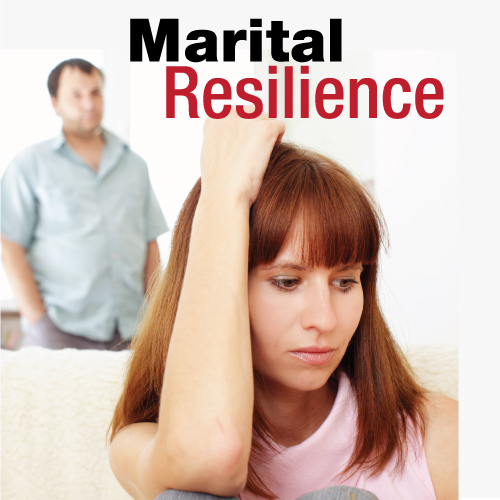Marriage and the Plenary Council

Asking the Right Questions
No matter where you live in the world, the Catholic Church is undergoing significant introspection and renewal. In Australia, one of the formal mechanisms is the Plenary Council – a process of national discernment culminating in a gathering of leaders and representatives in 2020.
The question posed to the Australian church is this: what is God asking of us in Australia at this present time?
The Plenary Council is a bit like a massive spiritual retreat – it’s an opportunity to reflect on God’s action in our lives and look forward together to discern what sort of Church we are called to become. It is somewhat analogous to a married couple attending a couples’ retreat to focus on the direction of their marriage. Both offer a moment to take stock and ask: what do we want to become?
It’s a truism that if you don’t ask the right question you will never get the right answer. So, in both cases, a couple retreat or a Plenary Council, we need to be sure we are focussed on the right question. It’s funny (or perhaps not) how hard that is to do.
If we (Francine & Byron) spend our retreat asking, “what is wrong with our marriage?”, or “what do you do that really annoys me?” or “how do I let you down?”, we are sure to find a long list of things to change. But are they really the best questions to be asking?
At one level these are not bad questions, and hopefully the process of addressing them would lead to some helpful outcomes. The problem is these questions are grounded in the assumption that ‘mutual happiness’ is a goal of our marriage.
Mutual happiness is of course a natural outcome of a successful marriage… but it’s actually not an objective. It’s something we can reasonably expect to achieve, but not something we should seek. It’s certainly nice, but ‘mutual happiness’ itself is a pretty a low bar for what is meant to be one of the most intensely intimate and other-centred of human experiences.
The real problem with these questions is that they are self-serving – they approach marriage as being about self-fulfilment and individual happiness. Consequently, a successful marriage becomes defined as keeping the spouses happy enough to avoid divorce.
This might be true for a secular concept of marriage, but it is a woeful shadow of the vision of Catholic Marriage that seeks to bring husband and wife into deeper relationship with Christ and to transform the world through their love.
So, how do we find better questions; questions that will take us closer to what we are meant to be?
Finding Better Questions
To do this we need to be clear on the purpose of marriage. The vision of Catholic marriage is for us, as husband and wife, to live our lives in total, mutual self-donation. So much so, that when we look back at the end our lives, we see that our very best human experience of God’s unconditional love for us, as inadequate as that human experience is, was experienced through the love of our spouse.
That is what our wedding vows in effect call us to do; love unconditionally in a way that we expect of no other human relationship. Now that’s something to set our sights on! Will we always meet it? Unlikely! Will that aspiration call us to great heights? It surely will!
Armed with this insight, we can then begin to find the more purposeful questions to ask ourselves. Again, the ones above were not wrong, just insufficient. They are a stepping stone, not the landing.
And the better questions? Well we each have to find our own but perhaps “how can I better truly know you?” and “what do I do that most makes you feel loved, cherished, respected?” might be a start.
And so, what of the Plenary Council and its relevance to the journey of marriage?
Setting our sights for the heights!
Well we were having a dinner discussion on the Plenary Council with a newly ordained priest during the week. A wonderfully insightful man with a clear and burning love for the Church and his people. He observed that in every meeting he attended or facilitated on the Plenary, all the predictable issues kept coming up: role of the laity and clericalism, role of women in leadership, women priests, sexual abuse, etc., etc. You could feel the sadness in his voice that seemed to ask: are these really the biggest questions we can ask of ourselves?
And then he dropped a bombshell insight: Let’s assume for just a moment that all these things are solved just like we want them to be… what then do we want the Church to be?
Now that’s a question that really moves us into the heart of our purpose as the people of God in Australia! We can too easily ask the obvious question about what we want to change (usually for our personal benefit if we are honest) and too often don’t really ask the deeper question, the question that really goes to the heart our purpose as a Church on earth – what we are called to be?
And if we can’t answer that question, or worse we don’t even realise the question exists, then we are not really setting our sights high enough. We’ve settled for a marriage of mutual convenience and a church of feel-good community experiences. Neither will help us to develop the intimate love of God both institutions are intended to accomplish.
And we have to say, for Catholic Marriage and for the Church at large, that’s not good enough.
Marriage is a Sacrament: it is meant to be lived in a manner that reveals to the world God’s love and to make that love present to those around us. Likewise, the Church – that is we, the Body of Christ – exist not for our ourselves, but to make manifest the living presence of God.
The God who gave his life to free us from the bondage of sin, so that we could have eternity with the God who loves us. Both marriage and the Church exist to participate with God in the transformation of the world.
For the sake of our marriages and for the sake of our Church, may we always have the courage and wisdom to ask the right questions.





I believe we are being called to be more loving and less judgmental.
LESS LAW MORE LOVE
The church in Australia is being called to be more about the love of Jesus and less about all the laws the rules and conditions. God loves us unconditionally the church needs to do that too. We need to be a church of welcome.